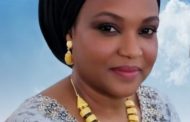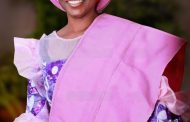By Adagbo Onoja
It was a former Permanent Secretary of the Ministry of Foreign Affairs who drew my attention to this before I went deeper into the literature. We were discussing the Nigerian image problem. And he said there’s something the image of Nigeria has not taken into consideration. He said if he went to my village today and told my mother that he came from me, he was sure the yams they would use to prepare his meal would be the best available. The same thing with the fish.
His storyline brought to mind the set of comrades who attended a wedding around Ugbokolo (the host town of Benue Polytechnic). They were so entertained with pounded yam by the comrade host that they had to insist on leaving early on the departure day or else be confronted with another round of pounded yam.
What is the logic of this memory trip to nativity? Well, to demonstrate that the folks can be pure at heart. That they are the starting point for anyone who wants to understand altruism.
However, it is one thing to talk about the purism of the folks and the goodness of the ordinary Nigerians but something else to put a handle to that in a particular case. This is the point about an Intervention’s story on Madam Agnes Ochiga at this point, using her last birthday three days ago.

Ageing herself
Mrs Ochiga is not Idoma. She is Gbaygi from Abuja. But she met and married the late Comrade Patrick Ameh Ochiga, an authentic comrade who didn’t just grab the title to his name as is fanciful today but was part of the labour activism at the Kaduna Textiles Limited in those days. He had been to Manchester several times to train on the textile industry too. In that marriage, Nigeria had a fusion of an Idoma man and a Gbaygi woman.
Everything went well until Comrade Ameh Ochiga was relocating back to Benue State upon retirement in the mid-1970s. Mrs. Agnes had to go along, meaning the task of understanding Idoma language since few people spoke Gbaygi or pidgin in the inner recess of Ogene Amejo where comrade was relocating. Although the comrade didn’t really relocate to that recess, having joined politics and becoming a Councilor in the old Okpokwu Local Government Council, that was not for Madam Agnes.
The long and short of that is that she fitted very well. But that is still not the real story as there is no exceptionalism in that. It is so common and, in many other cases, more complex. There isn’t that much differences between Idoma and Gbaygi in cultural terms anyway.
The story is this. At a point, this woman who is not a native had three sick elderly persons in the village to whom she was the sole care giver. Without her, the three persons would have been in worse troubles towards the departure lounge to death. She provided them a holistic care in expectation of no rewards at all. In any case, apart from her husband who was one of the three, the other two could afford no rewards for her at all.
To make matters worse, the third of the set was a difficult fella. He had a sense of himself that never accepted whatever he defined to be below standard for him.
He had no formal education beyond primary school or something like that but he was a philosopher. And he was well known for philosophical streak. Even as he approached his end and with very little else to fall back on, he carried that dignified sense of self. Meeting his standard could stretch anybody except an Agnes.
Now, all three persons are dead and gone to their makers or ancestors or wherever. The reporting here is to support the ex-Permanent Secretary’s thesis that the much talked about Nigeria’s image are merely the image of the less than 10 % sighted at metropolitan airports, hotels, conferences and business circuits. The real Nigerians are substantially invisible. Making them visible is the task for journalism as emancipation.
There is still one more issue area in which the Mrs. Agnes story is entangled. Bayero University, Kano where some of us studied had a professor of History called Dahiru Yahya. He is late now. One got to know him through Ambassador Ogbe Obande who was Prof Yahya’s friend and a benefactor too in BUK. As things worked out, Prof Yahya became one’s informal lecturer, not on History or any academic discipline but my endless questions on the mystery called Nigeria. He had the time and the disposition for my curiosity and inexhaustible questions.
On the day in question, the debate was on ethnic cleavages and national survival. As usual, it was a usually drawn out conversation, with questions which I would be embarrassed to ask today. I was entitled to them because I was just a 2nd year undergraduate. For him, some of the cleavages were simply overinvested and do not have the powers attributed to them. And that there were too many cleavages beyond the better known ones except that the media hardly focused on them. Anyway, the lighter side of the day was citing his marriage to an Igala lady shortly before this conversation and saying we should soon look forward to an Igala – Fulani oligarchy in his children from the marriage.
We laughed over it but he ends up propounding a framework. Now, I can say I understand him to be saying that there is nothing unshakeable about this or that power caucus. Taking Dahiru Yahya’s framework more seriously , we might not have seen anything of the Idoma – Gbaygi convergence in that marriage. For Comrade and Mrs Ochiga have got many children, male and female. As they are going to also get their own children, we might be heading for an Idoma – Gbaygi oligarchy there!
In the meantime, Ogene Amejo community has not failed to recognise Mrs Agnes for her records in altruism. At one of the burial sessions, a time was set aside for tokens in recognition of her exceptionalism. The message was in altruism getting communal recognition, not necessarily the amount collected at the occasion.
A fella had once claimed that the Gbaygis, the Basse Nges and Igede were the best sources of wives in the middle belt. Nobody asked him why but Mrs Agnes Ochiga might be an evidence for that. Don’t ask me who the fella is because I don’t want trouble!
Happy birthday to Mrs Ochiga!!!




























